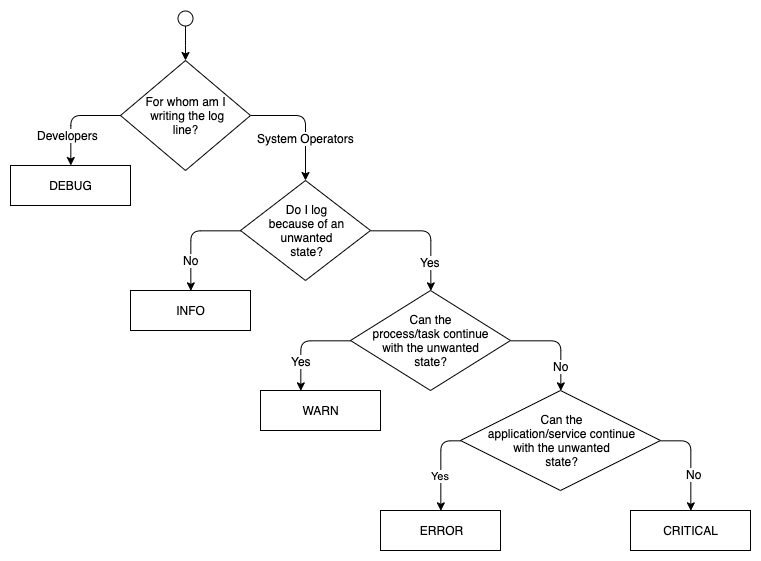Logging Levels in std/log
Deno std/log works with the following logging levels : DEBUG, INFO,
WARNING, ERROR and CRITICAL.
The Logging Levels and its purpose
DEBUG
Information that helps to diagnosing the application/service from a system administrator, developer or other IT/user person.
INFO
Generally useful information what the application/service is doing and which configuration is used. Keep the amount of logging output as brief as possible. Focused on the information which is required by a developer or system administrator to understand what the application/service state is.
WARNING
Anything that may can cause problems. Missing, incomplete or wrong information, configurations, timing (timeouts, retries or fail-overs) or data which may can cause problems but not in the actual moment.
ERROR
Any error which is fatal to the operation, but not the service or application. Errors should result in an investigation from the developers or system administrators why they occur and how to avoid this in the future.
CRITICAL
Any error that is forcing a shutdown of the application/service to prevent data loss (or further data loss). Or the application/service is unable to continue to work caused by missing or lack resources (cpu, memory, disk, file, connections, data etc.).
Simple Cheat Sheet
A simple cheat sheet which can help to choose a logging level.

Note
Other programming -languages or -libraries may:
- use different names for the logging levels
- offer more (detailed) logging levels
- offer detailed setting of logging levels for used libraries and modules